There was no need for talks if the issue at hand was solely for the US to return to the nuclear deal
Despite having previously agreed to lift the nuclear sanctions on Iran the US reneged by imposing further sanctions, under the guise of alleged support by Iran for terrorism and human rights violations, barring American citizens and companies from investment or trade with Tehran.
The US Treasury Department's Office of Financial Assets Control "has made it very clear that no payments linked to Iran may be processed through the US financial system," so if you receive money from Iran as a bank or a company, "you must make sure that this money does not then go to the US or to a US bank or to your US subsidiary."
With such sanctions in place, it is difficult for Iran to reap the benefits of the JCPOA, which was supposed to alleviate the economic pressure of Iran and the general population, who have been the hardest hit by this blatant example of US hypocrisy.
The JCPOA or Iran nuclear deal negotiations are under way in Vienna between Iran and the P4+1 without the US, with the Europeans using shuttle diplomacy with the US.
What has been the outcome of the talks? That is one of the key questions which come to mind, and here are two simple ways of looking at it.
First "some progress has been made but there's still some way to go". That is something that we keep hearing time and again.
Well, the second is an even harsher one, which we don't hear so often, "almost nothing".
That almost sounds like the talks are at an impasse. Well, the issue of sanctions appears to be the major sticking point, with the US concocting its own version of what sanctions should be lifted and probably when they should be lifted.
For example, Iran has demanded that the US remove an enormous 1600 or so sanctions which were imposed on Iran after Trump pulled out of the accord.
Let us look at Iran's chances of a nuclear agreement breakthrough, and whether this agreement would actually be to the benefit of Iran, or not.
The Grand Hotel in Vienna, Austria, is where the Iran nuclear talks are taking place.
So far there have been five sessions in two weeks, but have there been any breakthroughs?
We are though, nonetheless, pleased that Iran has continued to agree to engage in discussions, in direct discussions with us, and with our, our, our partners on how we move forward.
US President, Joe Biden
Two working groups are mapping out what needs to be done.
One group is preparing a list of measures that need to be taken by Iran; another is drafting a list of sanctions that have to be removed by the US.
And now, it has been announced that a third group is going to work on the sequence.
The most important question is to talk about the sequence, because we have already talked about measures. And we have now, focus more on the question of sequence to make sure that the US, who has left the JCPOA should come back first, should lift all its sanctions first, and then Iran would follow after the verification.
Abbas Araqchi, Deputy Foreign Minister, Iran
The US now has imposed about 1600 sanctions. Many of them are non-nuclear related. And they even relabeled some of the ones that were nuclear related to seem that they were related to terrorism. so to dismantle this whole thing, the Iranians want the US to withdraw all the sanctions that were imposed after January 2016.
Peter Kuznic, Director, Nuclear Studies Institute
Let's review that sequence, one more time. The US would have to come back to the JCPOA first, and lift all sanctions, Iran would then follow after verification.
Iran's foregn minister also talked about this.
Upon the JCPOA being enacted, Iran, according to all accounts, did not reap the benefits of what it was entitled to under that agreement.
Foreign Companies we're afraid to do business with Iran because of either sanctions that may have been incurred on them, and also the issue of human rights, they just didn't want to get into making deals with Iran.
Was that the case and will those types of problems be overcome this time?
Yeah, it's a very good question, thank you very much. I would like to state that you know by taking part in the JCPOA meeting right now which is being held in different points in different parts of sessions in Vietnam. One of the most important issues, which is the concern of the Iranian people (and) our supreme leader, is that we should be very cautious about the process, about the steps of the negotiations, about the content of the negotiations. We should be careful and not just giving the permission to the negotiators I mean, the P4+1, or also the P5+1 to direct the negotiations, if they wanted to direct the negotiations, we should once and for all, just retreat from that, I mean meeting, and then insist on our own demands. As you mentioned about the sanctions about human rights, about secondary sanctions, preliminary sanctions. The best insight, I mean the five plus one group are not trustable. All (any) of them. because once the JCPOA was concluded, you know, after a couple of months, they imposed, again, some sanctions, which we were supposed to just, you know be relieved from those crippling sanctions. So in this process, Iranian negotiators should be careful about insisting on all of their own demands by just referring to our Supreme Leader's statements that diversity side is not trustable. And after that, just try not to give the permission to the western side to drag the negotiations (on) otherwise we won't get any benefit from those meetings.
Ali Rezvanpour, Analyst, Caucasus Affairs, Expediency Council
Mr Rezvanpour, you have mentioned the leader on a number of occasions here and your statements.
Let us review one of the statements that he has made regarding the nuclear talks.
America does not seek to accept the truth in negotiations. No, its goal in the talks is to impose its own will and wrong wishes.
Ayatollah Seyyed Ali Khamenei, Supreme Leader of Iran
You know, our supreme leader is very clear regarding political issues, he says that the American side is trying to impose some suggestions, which are disdaineful, which are harmful to the Iranian benefits. That's why we do not have any confidence in their statements, in their suggestions. While keeping the self interest, your opposite side is insisting on one principle, what is mine is mine, what is yours is negotiable. This is a principle of international relationships, those countries who are taking part in different kinds of negotiations with the Iranian side are insisting on Iran to just take back, different kinds of steps in which Iran has taken by just reneging on its own promises. The US government just triggered (incited) Iran to take some steps in violation of the JCPOA.
Ali Rezvanpour, Analyst, Caucasus Affairs, Expediency Council
Back in 2015, when the JCPOA was signed and hailed as a landmark agreement between Iran and the world powers. Iran was supposed to gain the economic benefits of this agreement.
Yet many US business restrictions, actually remained. And that's on top of the US scaremongering of countries and of businesses which wanted to engage with Iran.
The US and other countries agreed to lift the economic embargo in 2012, in an effort to curb Iran's civilian nuclear programme.
The move meant that companies in Europe and Asia and elsewhere were free to invest in Iran and trade with Iran, and many were interested in doing so.
Cooperating with Iran's economy is itself an advantage in this competition, anyone who enters Iran's economy faster will naturally benefit more than the other foreign companies.
Mohammad Nahavanian, Vice President for Economic Affairs
This is a true demonstration of the will to try and do, and go back to business in Iran.
Patrick Blain, Chairman, French Auto Manufacturing Committee
We are looking forward to come back, and to assist in any way we can the Iranians in the oil and gas, as well as many other industries.
Philippe Palomba, CEO, MPH Global Services
If the conditions are met we can see a flow of investments in various sectors.
Member of French Industrial Committee
But while the US government agreed to lift the nuclear sanctions against Iran and imposed other sanctions, for example, over Iran's alleged human rights violations or alleged support for terrorism.
These sanctions barred American citizens and companies from most forms of investment or trade with the country, in theory, those sanctions should affect only US companies but in reality the laws reach goes well beyond US borders.
For example, US financial sanctions still cause problems and made European businesses and banks, subject to US economic punishment.
Much trade should have happened between the EU and Iran
First on the economic sector, we have agreed to announce our economic cooperation. We will support the Iranians bid to join the WTO, we have agreed to exchange business delegations and to cooperate on financial issues, on tourism, textiles, agriculture, and we used to have been Iranian main trade partner, and we are determined to to take up that position again.
Federica Mogherini, Former EU Foreign Policy Chief
That was back in 2015, when the JCPOA actually happened. Well the US wasn't going to have any of that!
Former US Treasury Secretary, Steve Minuchin, actually warned, or even threatened, EU countries against doing business with Iran.
Let me first comment on INSTEX. I don't believe there's been any INSTEX transactions, as we've made clear, we are working on a SWIFT channel, that we have approved for humanitarian transactions, will continue to allow humanitarian transactions, we've warned INSTEX and others that they will most likely be subject to secondary sanctions depending on how they use that.
Steven Mnuchin, Former US Treasury Secretary
Secondary Sanctions?
Now, we should consider the types of contracts that didn't happen as a result of US scaremongering and threats.
Let's take a look at some of those contracts.
Germany, Siemens, which the US forced to leave, $1.6 billion.
USA, Boeing airplanes, remember the $3 billion that Iran signed away for all those airplanes, there were 100 of them; Oil and gas sales to South Korea worth $1.8 billion; not to mention TOTAL petroleum from France, $4.8 billion.
One could name 20 or 30 other contracts, Well over $100 billion could have been earned in sales and potential revenues, but they were lost in the very same year when these treaties were signed.
While the coverage by the US press, like that of former US Treasury secretary Mnuchin, was basic scaremongering, if you were a businessman how would you react to it? Well here's one reaction that speaks volumes.
We must be confident, insofar too, while we knew that sanctions are still there and the relief is fairly limited.
Member of French trade delegation
Notice the skepticism, even when the JCPOA was first signed. So how would a country invest in Iran when that type of pressure was being exerted?
The US Treasury exerted pressure on entities wishing to trade with, or invest in, Iran.
The US Treasury Department's Office of Financial Assets Control, made it clear that no payments linked to Iran, would actually get processed through the US financial system.
This was just after the JCPOA was signed, so if you receive money from Iran, for example, as a bank or company, you must make sure that this money does not then go to the US or to a US bank, or to any US subsidiary.
However, most international companies actually go through the US financial system, so how can the JCPOA even be considered a deal?
The US has always used the SWIFT code, the banking system, as a mechanism of controlling global economics, to put pressure on countries to do the bidding of the United States through the, the threat of secondary sanctions that is if a country, for instance, if the United States sanctions Iran and says you can't, you can't do business with Iran, any European country or Asian country that does business in the Iran and uses the SWIFT system will be subject to secondary sanctions, this has always been one of the powerful tools that the United States Department of Treasury had and it's clear that the Biden administration, as much as they say they want to rejoin the JCPOA, they don't really mean it.
Because if they meant it, the Department of Treasury, which works for the president of the United States by the way, could be told not to enforce these, could be, new instructions could be written.
Scott Ritter, Former UN Weapons Inspector and Intelligence Operative
And finally, this brings us to the current Vienna talks, which appears to be a repeat scenario in the sense that the US is not lifting all the sanctions.
Additionally, the US is planning to divide the sanctions, and in some cases, relabeling them.
Well, this is what the lead negotiator of the talks from the Iranian side has said about sanctions, he believes that we have to go back to the original model of the JCPOA.
No we have to go back to the same model in the JCPOA, they are sanctions, which should be terminated and the US president has the authority to terminate them so that they should be obviously terminated through executive orders, and there are sanctions which are actually the result of the Congress, you know, legislation.
For them, the President could only waive, and this has been mentioned in the JCPOA. So, we want all those sanctions (to) be reversed.
Whatever (was) imposed during this Trump administration, whatever imposed or re imposed or relabeled during (the) Trump administration and whatever is mentioned in the JCPOA should be lifted, and they should reverse whatever has been done.
And I think the Americans know best how to do that.
Abbass Araqchi, Deputy Foreign Minister, Iran
A land full of business opportunities, an investor’s paradise, from the population which is market oriented, to natural resources and its transport capabilities.
Iran's untapped potentials include roads, railway networks and commercial ports.
Then there are the natural resources, agricultural products and crude oil ranking fourth in the world, with natural gas reserves coming in at number two.
But the US sanctions regime has bitten into Iran's revenues, and those of investors who can profit from it.
Iran's GDP growth dipped into negative territory, for the years 2018, 2019 and 2020.
Iran's auto sector, for example, has been hit hard. Production has fallen from around 2 million units to half, around 1 million units.
Why didn’t foreign companies invest in Iran?
In 2014, the fear that the United States instilled within the global community regarding the potential backlash financially for doing business in Iran prohibited many European businesses from engaging with Iran after the signing of the JCPOA and so this is why it's absolutely critical that all sanctions are lifted, not that they are categorized, and certainly, that those that were reimposed and or were relabeled are lifted.
David Yaghoubian, History Professor, CSU
Could you give us your thoughts on the talks so far?
The talks in Vienna are being conducted within the confines of the US returning back to the agreement, but the US return to the deal from Iran's point of view is for the US to eliminate all the sanctions, in my opinion, there was no need for talks if the issue at hand was solely for the US to return to the deal.
Massoud Baraati, Administrator, Iranian Think Tank Network
This is Mr Araqchi’s explanation of what the sanctions are all about.
Next week. The most important question is to talk about the sequence because we have already talked about measures, and we have now, focus more on the question of sequence to make sure that the US, who has left the JCPOA should come back first, should lift all its sanctions first and then Iran would follow after the verification.
Abbass Araqchi, Deputy Foreign Minister, Iran
How would you asses this statement?
The point that Mr Araqchi is making at the beginning, contradicts his ending statement, and does not match what he said at the end. When we talk about a step by step approach, this opposes the official line and stance by the Islamic Republic. When it comes to the nuclear talks, it may appear that the US, on the surface, may be moving towards sanctions relief. But we had the experience from the previous agreement, when there was an agreement with the P5+1 although the agreement was the first with the US, the US did all that it could to keep the sanctions, and even expand them. It penalized major banks like a French bank that it fined $9 billion, after the agreement, and then the US and Saudi Arabia established the Terrorist Financing Targeting Centre, TFTC, in Saudi Arabia. This was the US Treasury Department's branch for the West Asia region in the beginning of 2017. This was done when former US president Trump visited Saudi Arabia. Iran incurred a heavy blow at the end of the year from this organization. This is just one of many examples of how the US, not only keeps its sanction structure, but also expands it based on how it sees fit. Even now during US President Joe Biden's term, prior to him coming into office, a 50, strong Task Force, specializing in sanctions was set up, consisting of Mr. Cohen and Mr. Nephew, and other officials from both parties. This was set up at the US National Security Agency, with the aim of developing and expanding sanctions if we are seeing that the sanctions pressure is not as intense as before, it's not because they are negotiating with us, but it's because, but it's because of the sanctions cycle. Definitely after one or two years, there will be new sanctions that will be applied, or will come about.
Massoud Baraati, Administrator, Iranian Think Tank Network
Failure of the US maximum pressure campaign
The toughest and most comprehensive multilateral sanctions that the Iranian government has ever faced.
Former US President, Barak Obama
17 specific sanctions against Iran
Steven Mnuchin, Former US Trade Secretary
It is all about the sanctions with the US, when it comes to Iran. The US had sanctioned every individual and entity that it could from Iranian officials to industries, and even Iran's leader.
An executive order imposing hard hitting sanctions on the Supreme Leader of Iran and the office of the Supreme Leader of Iran and many others.
Former US President, Donald J Trump
How is that for diplomacy?
The US calls it the maximum pressure campaign,
That they will face mounting financial, isolation…
Steven Mnuchin, Former US Trade Secretary
But even according to their own officials, it has failed.
Robert Malley, the US Iran envoy, said that the maximum pressure campaign on Iran has failed, that a return to the nuclear deal is the first step out of the morass.
His suggestion was to offer Tehran a Goldilocks style deal. Enough sanctions relief so that Iran would return to the deal, but not so much that it would leave US President Joe Biden vulnerable to hardliners at home.
The US side has said that they have a list of measures on both sides to come back into compliance. The next step is to sequence these to allow both sides to save face.
Iran has been slowly moving away from its JCPOA commitments and coping with the sanctions. In the past months with Biden having made no progress in lifting the sanctions, Iran has reached 1 million barrels of oil per day of oil exports, and the funds that were frozen in Iraq, South Korea and Japan, has become more accessible to Iran.
Iran is getting past that crisis; it is getting past the COVID 19 pandemic by signing contracts for export of its domestically made Coronavirus vaccine.
Whether or not a deal takes place Iran is going to move forward, it will progress. So it's time for the West, in particular the US, to make its mind up whether it wants to make a deal with Iran, or not.
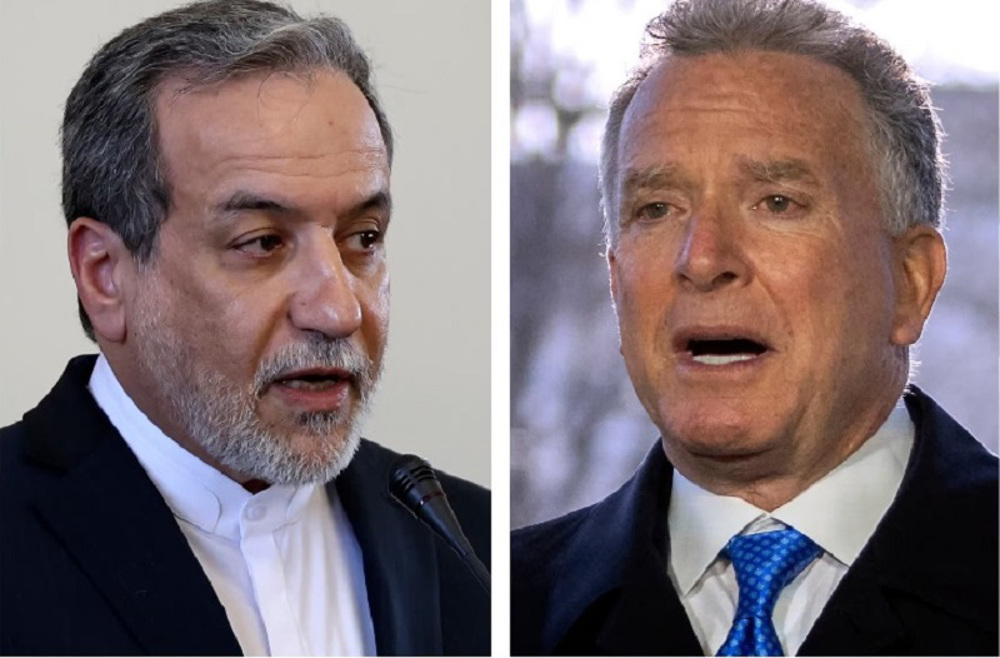
Indirect Iran-US talks proceed on 'constructive' note
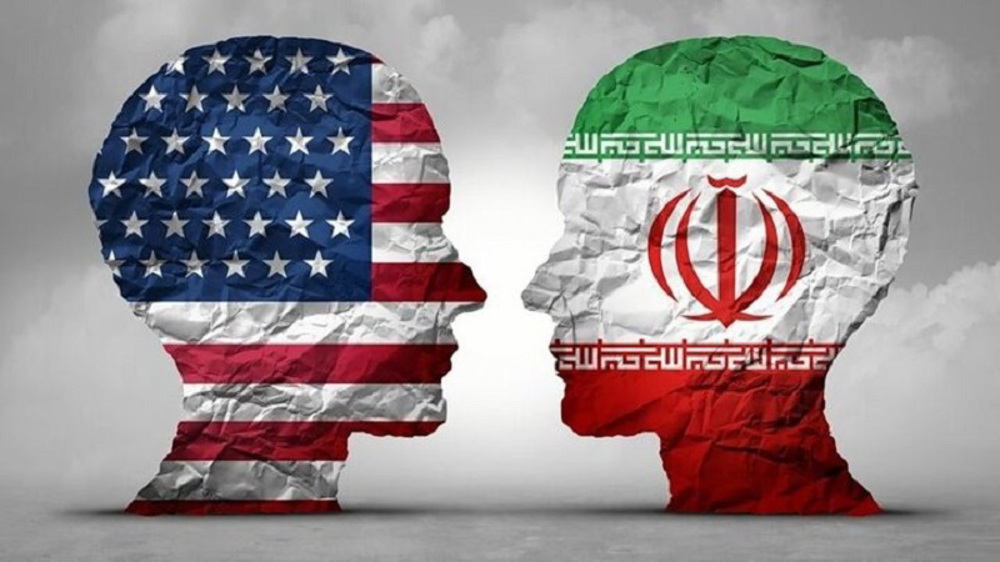
Indirect Iran-US meetings
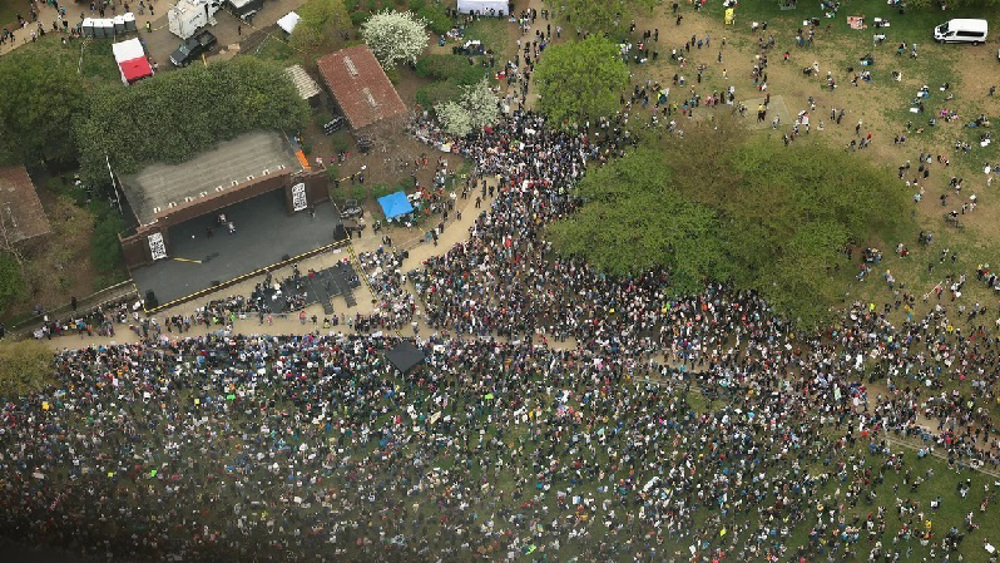
Trump induces socio-economic turmoil in Washington
At least 65 Palestinians killed inside Israeli prisons
Iran denies US investors will be present in its trade fair
Israeli forces kill three Palestinians in intensified West Bank raids
VIDEO | Press TV's news headlines
Nearly 600 children killed in renewed Israeli assault on Gaza: UN agency
Moroccan port workers protest Maersk ship carrying F-35 parts to Israel
Iran will ‘chart its own path’ if US refuses to negotiate on ‘equal footing’: President
Iran eyes more exports to Brazil to balance bilateral trade


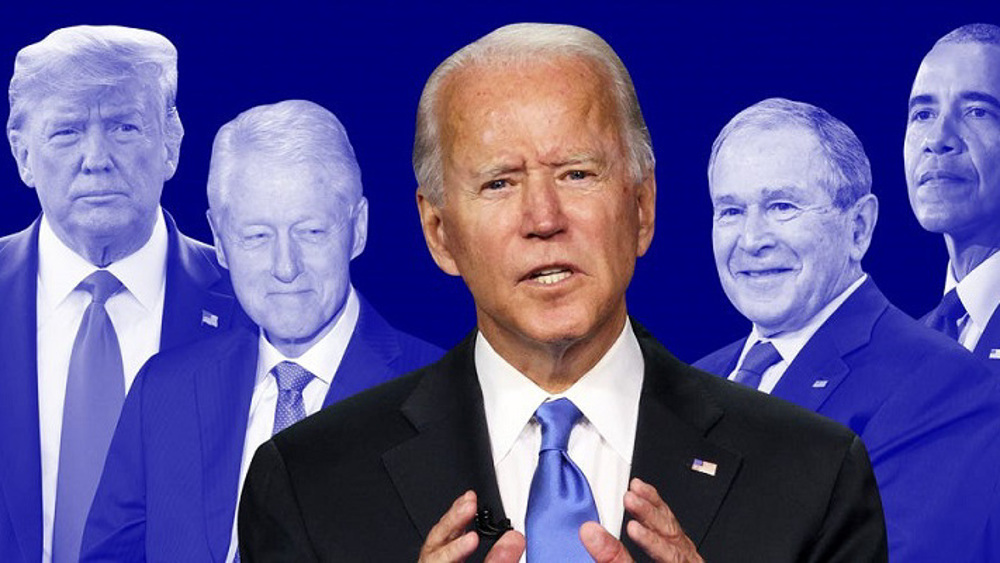



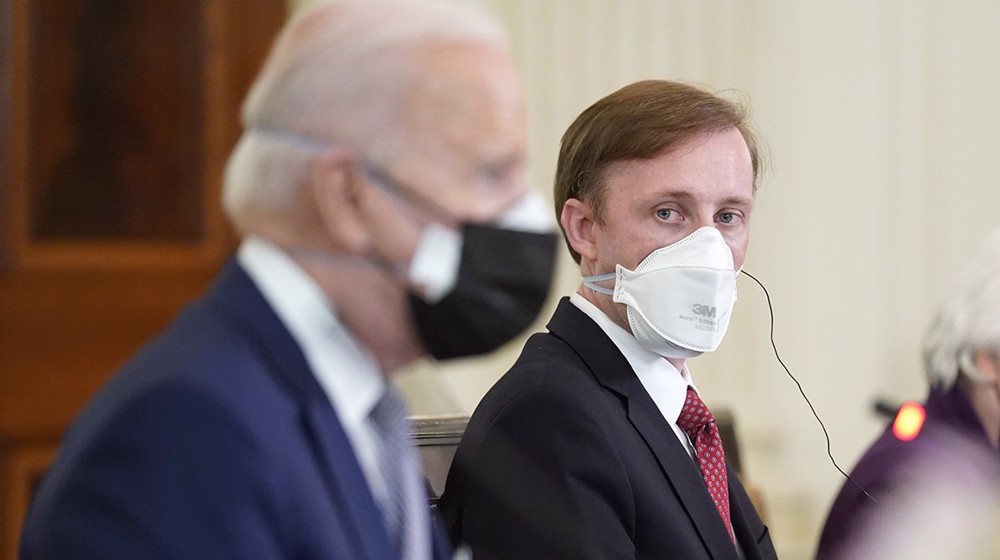
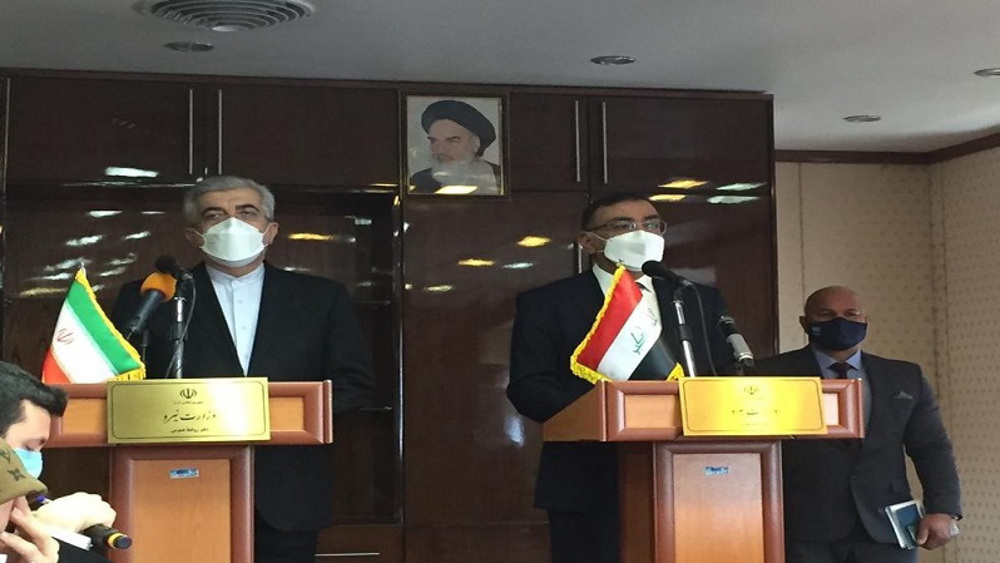
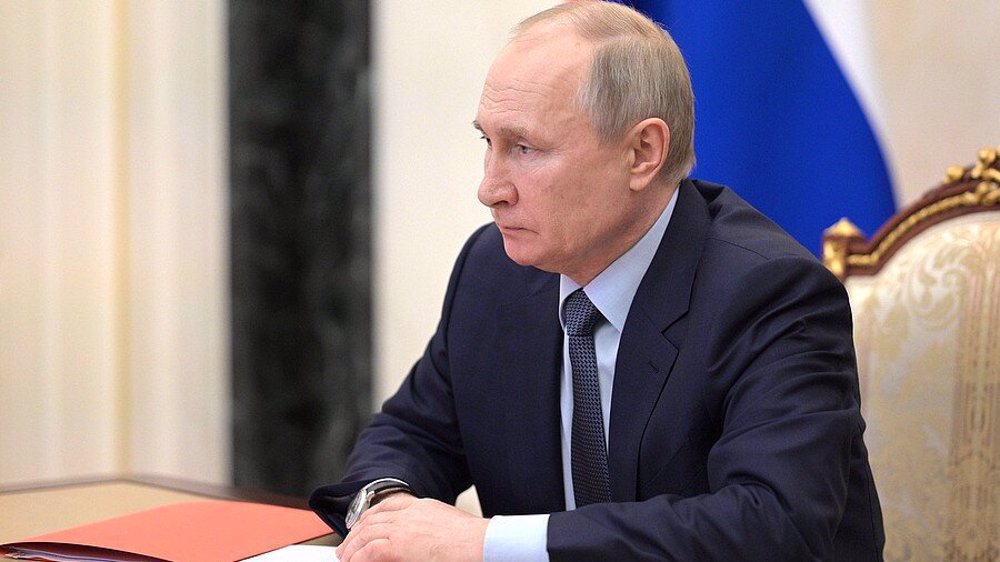
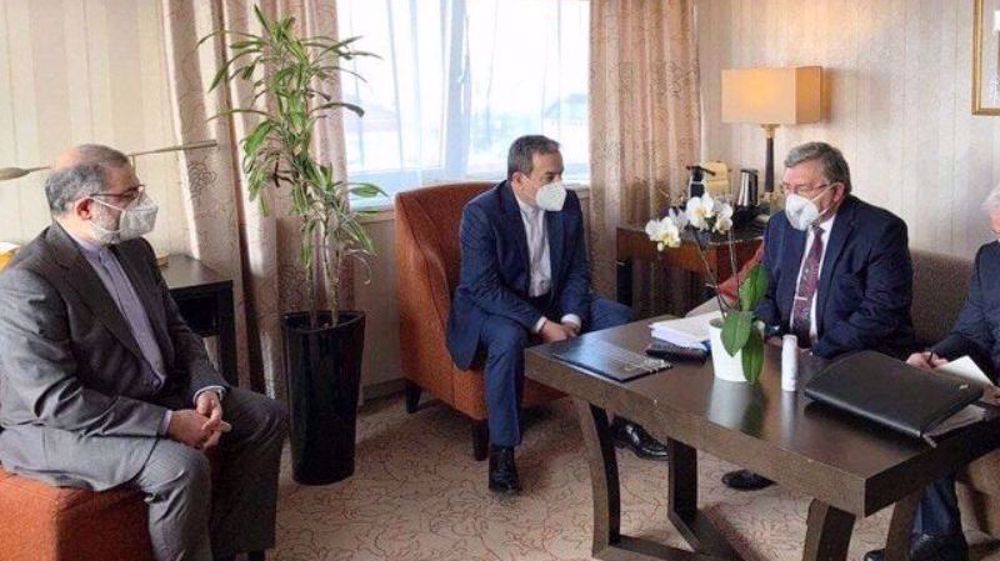
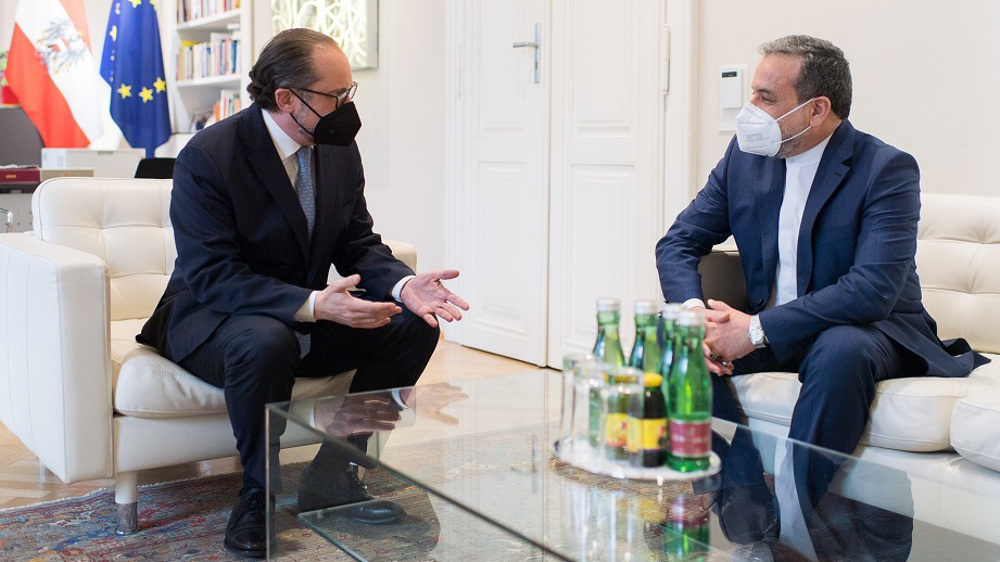

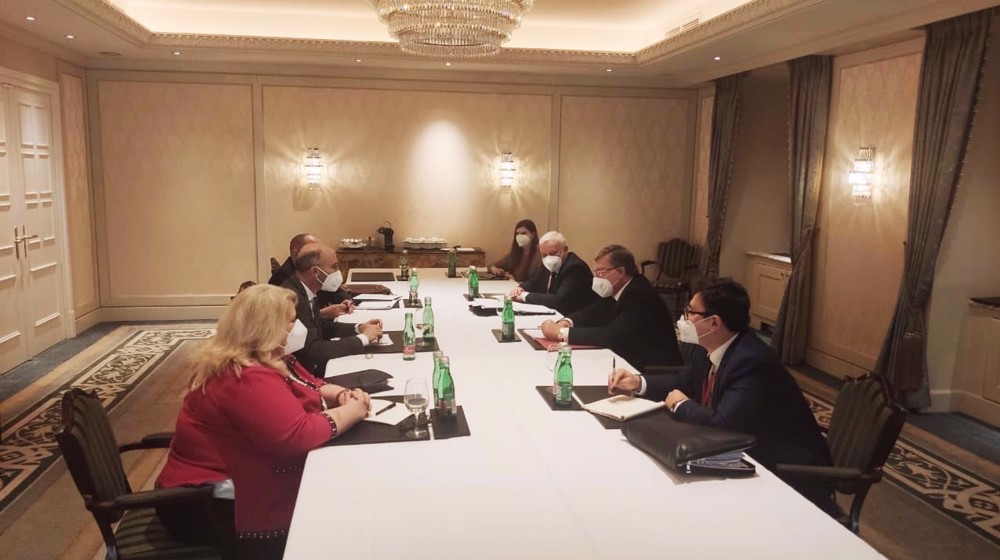
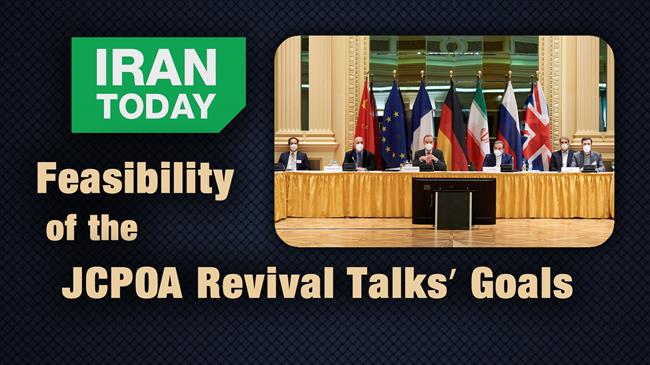
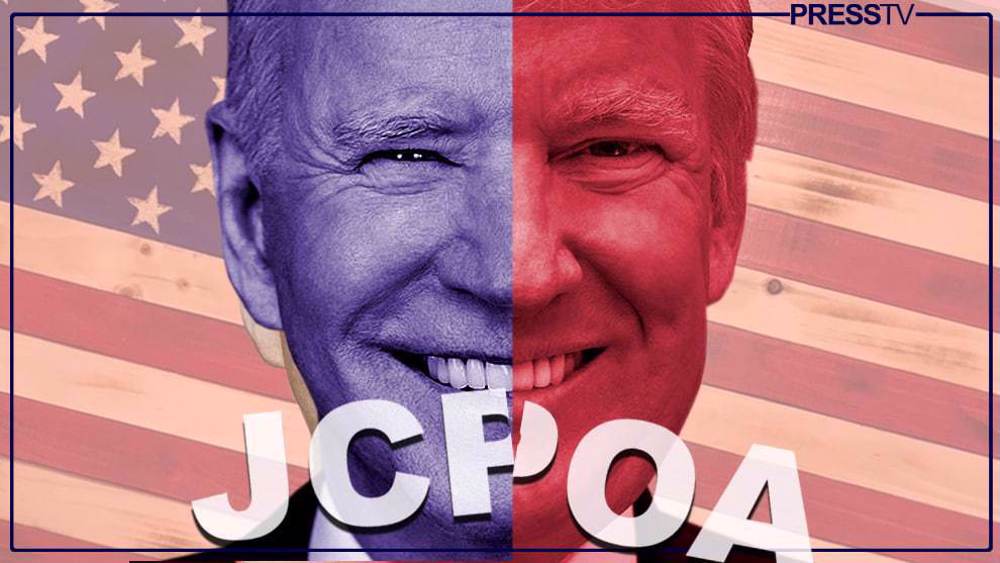
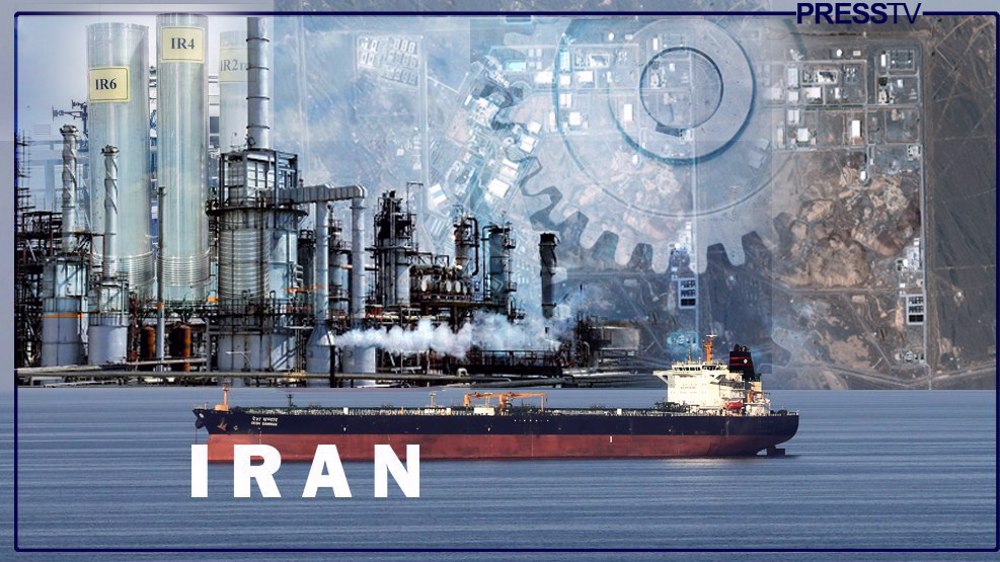

 This makes it easy to access the Press TV website
This makes it easy to access the Press TV website